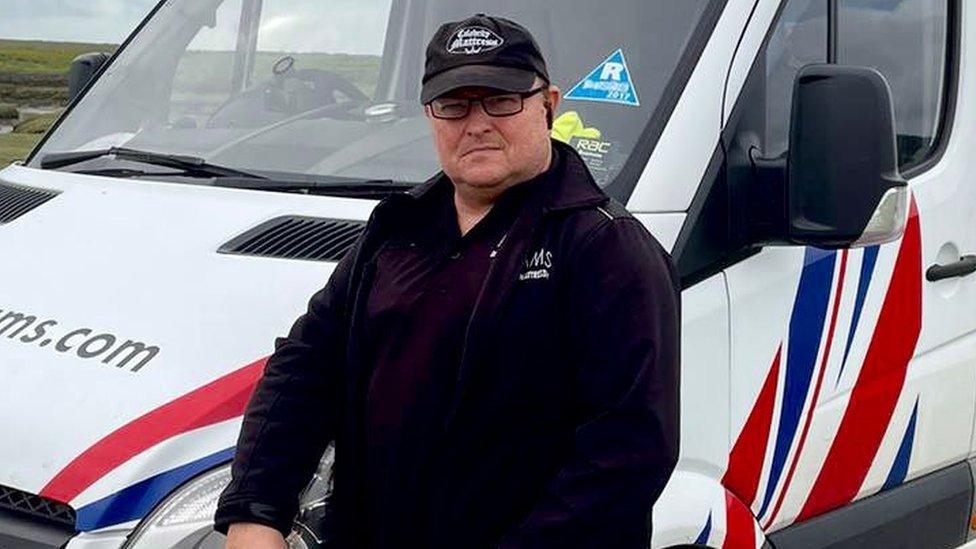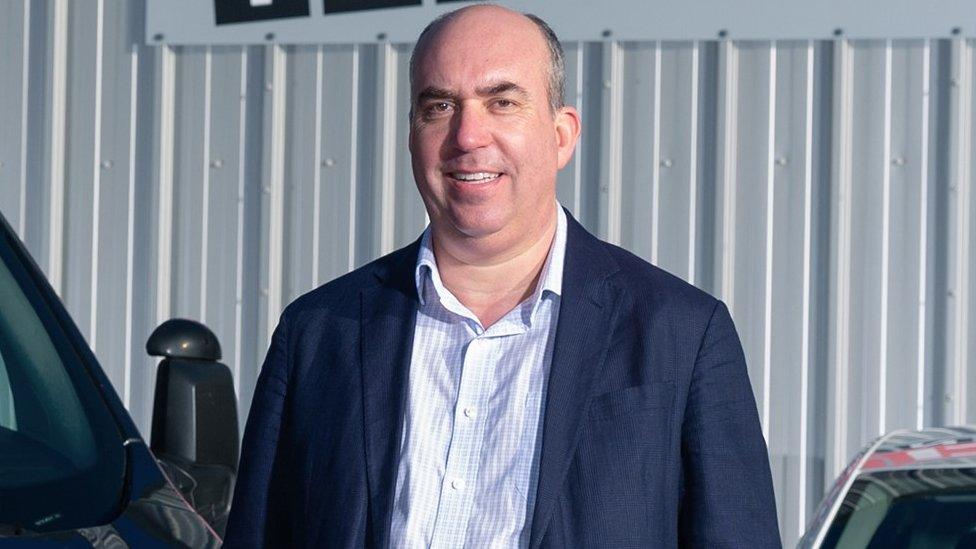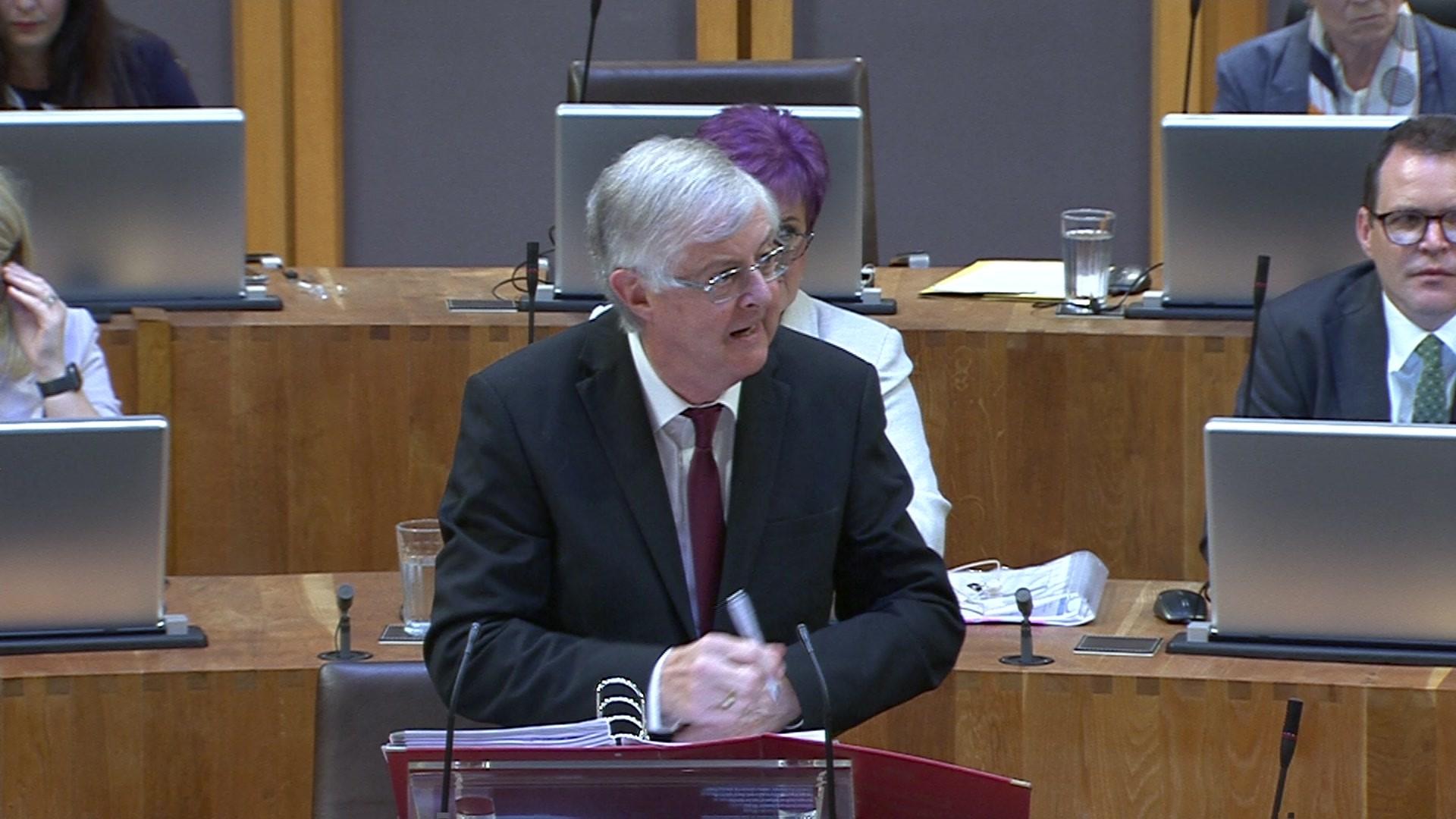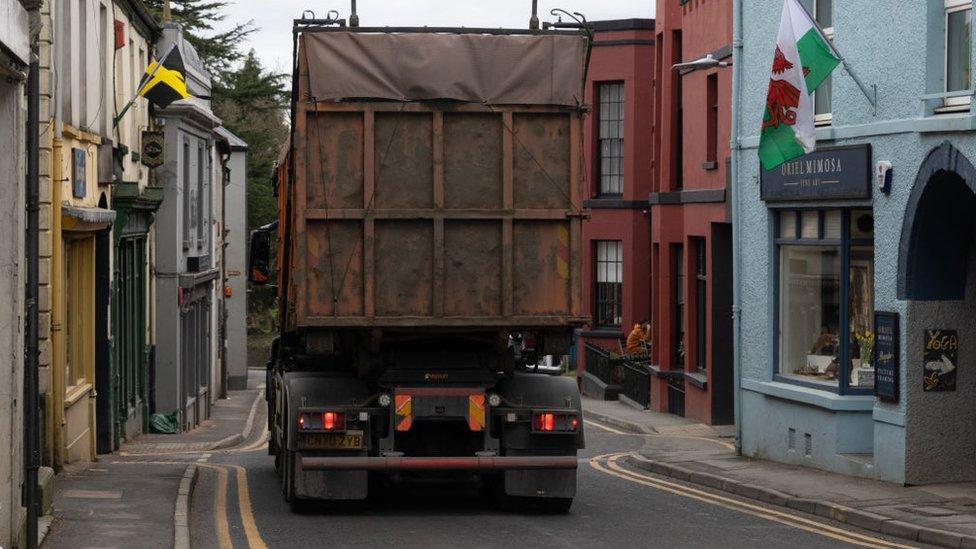Wales' 20mph speed limit destroying companies, claims boss
- Published
- comments

Mark Jones says the new speed limit will affect his work-life balance
A business owner claims Wales' 20mph speed limit is "destroying companies and putting so much stress on people".
But the chief executive of one driver training school said he believed the decision should be considered UK-wide.
Mark Jones, of Bzams Bed'z And Mattresses in Llanelli, Carmarthenshire, said his deliveries were taking an hour-and-a-half longer than usual.
"I'm getting less and I'm losing more time in my life," he added.
It comes after Wales became the first country in the UK to make the speed limit in built-up areas 20mph.
Welsh ministers said a 20mph (32km/h) limit would reduce deaths and noise and encourage people to walk or cycle, but it has caused controversy with some drivers.
A petition calling for the Welsh government "to rescind and remove the disastrous 20mph law" passed 320,000 signatures on Wednesday night. It is by far the biggest number of signatures on a petition to the Senedd.
Mr Jones's business sells and deliver mattresses and beds across south Wales. He said the 20mph limit will change how his business operates.
"Don't get me wrong, it will be great outside schools to protect children," the 50-year-old said.
"But when you're delivering all day and you've got to go from village to village or town to town, it just can't be done.
"I was an hour and a half over on Monday, and I'm not getting paid extra for that. Who's paying my loss?

Seb Goldin of RED Driver Training welcomes the implementation of a default 20mph speed limit in Wales
"I've got less time for my life because I'm spending more time on the road.
"How I've run the business for the last 10 years is giving people half an hour (for) when I'll be there. You can't do that anymore, you've got to give a two-hour window."
As a result, Mr Jones said the change will affect his work-life balance.
"I don't feel like going to work - it's that bad," he said.
"What is the point in me working more? I'm getting less and I'm losing more time in my life.
"They're destroying companies, and they're putting so much stress on people."
However, Seb Goldin, chief executive of RED Driver Training, welcomed the default 20mph.
"A crash at 30mph has twice as much energy and destructive potential as a crash at 20mph," he said.
"Lowering the speed limit will increase both thinking and braking distance for road users, therefore decreasing the risk of injury which feels completely sensical.
"The industry will be keeping a close eye on the impact of these changes in Wales, which will help encourage similar updates to speed limits across the rest of the UK."

"We all appreciate it's going to change lives," says care manager Jane Davies
Jane Davies, from Llantwit Major, Vale of Glamorgan, is a care manager at All Care, and said it is too early to tell whether there will be an impact on the business.
"We're increasing the travel time we're giving the girls, but that's all we can do at the moment" she said.
"It is confusing and they spent all this money on signage and I don't think it's clear.
"I am leaving 10 minutes early for work in the morning, that's to ensure I'm there.
"I don't think any of us like it but we all appreciate it's going to change lives."
James Foley, from Living at Home - a home care agency that covers the greater Swansea area- said small costs will add up throughout the year.
"We've got our live systems where we can see where the staff are in terms of getting to their next call, and already there are delays building up," he said.

James Foley of the Living At Home care agency describes the new limit as a "burden"
"We're doing between 20,000-24,000 visits per year, we pay for the travel time from getting from A to B. If that extends, and it might only be a few minutes per call, if you do the maths over the course of a year, that's substantial.
"Who absorbs these additional costs, with high fuel costs already? It's just another big issue."
"It's just more of a burden for companies like ourselves who are all in the business of supporting vulnerable people."

RUGBY DOCUMENTARIES: Changing lives, connecting communities and creating legends
FOLLOW THE ACTION: All the latest news, views and interviews at the Rugby World Cup

Related topics
- Published19 September 2023

- Published20 September 2023

- Published20 September 2023
